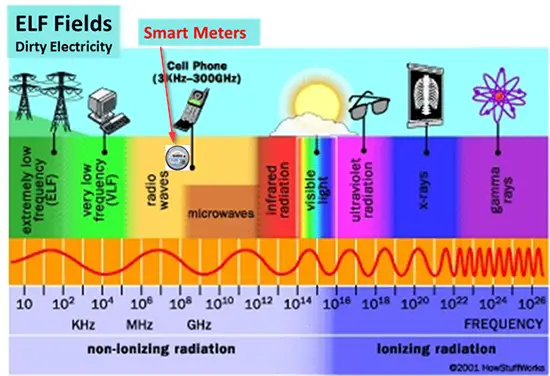The importance of money lies in its multifaceted role as a medium of exchange, a unit of account, and a store of value. As a medium of exchange, money facilitates the transaction of goods and services, enabling individuals and businesses to trade efficiently and without the limitations of barter systems. It serves as a common measure of value, allowing for easy comparison of the worth of different products and services. Money also functions as a store of value, preserving the wealth and purchasing power of individuals and organizations over time. It helps in the allocation of resources, investment in productive assets, and economic growth. Furthermore, money promotes economic stability by providing a means of mitigating risk and managing unforeseen expenses. In a modern, complex economy, the importance of money extends to its role in fostering economic growth, financial stability, and overall prosperity. It empowers individuals to meet their basic needs, pursue opportunities, and plan for the future. Therefore, money plays a pivotal role in shaping the economic landscape and enhancing the overall well-being of societies around the world.
Historical Perspective
In the vast tapestry of human history, few concepts have played as pivotal a role as money. From its humble origins as a simple medium of exchange to its central position in global economies today, the evolution of money has shaped civilizations and empires, fueling both progress and conflict. This article delves into the historical perspective of money, examining its evolution, its connection with empires, and the financial revolutions that have defined our world.
1. The Evolution of Money
Money, in its various forms, has been a fundamental aspect of human societies for thousands of years. It began as primitive barter systems, where goods and services were exchanged directly. Over time, societies recognized the need for a standardized medium of exchange, leading to the emergence of commodity money such as shells, salt, and precious metals like gold and silver. These commodities held intrinsic value and were widely accepted for trade. The next significant leap came with the introduction of representative money, where paper notes were backed by a physical commodity, ensuring stability and ease of transactions. Eventually, this system evolved into fiat money, where the currency’s value is not directly tied to a physical commodity but is based on the government’s declaration and people’s trust.
2. Money and Empires
Throughout history, powerful empires have understood the importance of controlling monetary systems. Empires like the Roman Empire used their own coins as a symbol of authority and spread their currency across vast territories. The stability and acceptance of a common currency facilitated trade, cultural exchange, and economic growth within these empires. However, the rise and fall of empires were often intertwined with their monetary policies. Debasement, where rulers reduced the metal content of coins, led to inflation and economic instability, contributing to the decline of many empires. Conversely, sound monetary policies bolstered empires, allowing them to thrive economically and culturally.
3. Financial Revolutions
History has witnessed several financial revolutions that transformed the way money is perceived, managed, and exchanged. One of the most notable examples is the establishment of central banking systems. The Bank of England, founded in 1694, pioneered modern central banking practices, influencing the global financial landscape. The industrial revolution brought about another significant change, transitioning economies from agrarian to industrial. This shift led to innovations in banking, credit, and investment, laying the groundwork for modern financial markets. In the 20th century, the digital revolution further revolutionized money with the advent of credit cards, electronic transfers, and cryptocurrencies, challenging traditional banking systems and reshaping the global economy.
The historical perspective of money reveals a fascinating journey marked by innovation, power struggles, and societal evolution. From primitive barter systems to digital currencies, money has adapted and transformed, shaping human societies and economies along the way. Understanding this evolution provides valuable insights into the challenges and opportunities that lie ahead in the ever-changing landscape of global finance. As we continue to navigate the complexities of the modern financial world, reflecting on our historical roots can guide us toward a more stable and prosperous future.
Money and the Modern Economy
In the ever-changing landscape of the modern economy, the role of money is pivotal. It shapes economic systems, influences monetary policies, and is intricately woven into the fabric of globalization. Understanding the complex interplay between these elements is crucial for policymakers, economists, and the general public alike. In this article, we will explore the fundamental aspects of money in the contemporary world, focusing on economic systems, monetary policy, and the impact of globalization.
1. Economic Systems: Diverse Paths to Prosperity
Economic systems form the foundation of any society, dictating how resources are allocated and wealth is generated. The modern world witnesses a spectrum of economic systems, ranging from free-market capitalism to centrally planned socialism. Each system has its merits and challenges, shaping the distribution of wealth and opportunities within a society. In the digital age, technology has amplified the disparities and opportunities within these systems, creating new challenges for policymakers striving to strike a balance between innovation and social equity.
2. Monetary Policy: Navigating Economic Stability
Central banks play a pivotal role in shaping the economy through monetary policy. By adjusting interest rates, managing inflation, and regulating the money supply, central banks influence spending, investment, and employment. In the wake of recent global challenges, such as the COVID-19 pandemic, central banks have employed unconventional measures to stabilize economies, underscoring the need for flexibility and innovation in monetary policy. However, the delicate balance between stimulating economic growth and preventing runaway inflation remains a constant challenge, requiring vigilant monitoring and strategic decision-making.
3. Globalization and Money: Redefining Borders
Globalization has transformed the world into an interconnected web of trade, finance, and information exchange. Money, as a universal medium of exchange, lies at the heart of globalization. Cross-border transactions, digital currencies, and international financial markets have reshaped the global economy, fostering both opportunities and vulnerabilities. While globalization has lifted millions out of poverty and facilitated the flow of ideas and innovation, it has also led to economic interdependence, making nations susceptible to financial crises in distant corners of the world. Striking a balance between reaping the benefits of globalization and mitigating its risks requires international cooperation, sound policies, and a deep understanding of the interconnectedness of global economies.
In the modern economy, money serves as a catalyst for change, influencing economic systems, shaping monetary policies, and redefining the contours of globalization. As the world navigates an era of rapid technological advancement and unprecedented global challenges, policymakers and economists must work collaboratively to foster inclusive economic systems, adaptive monetary policies, and responsible globalization. By understanding the intricate dynamics of money and its multifaceted impact on the modern economy, societies can strive for sustainable prosperity, ensuring that the benefits of economic progress are shared equitably and that the pitfalls of financial instability are mitigated effectively.
Money and Society
In today’s rapidly changing world, the intersection of money and society is more prominent than ever before. As societies evolve, so do the challenges associated with income inequality, disparities in education and opportunities, and variations in health and well-being. This article delves into these crucial aspects, examining their interconnectedness and exploring potential solutions to create a more equitable and just society.
1. Income Inequality: Widening Gaps and Social Implications
Income inequality remains a pressing issue worldwide, with the rich getting richer and the poor struggling to make ends meet. The gap between the wealthy elite and the working class continues to widen, leading to social unrest and economic instability. Addressing income inequality requires systemic changes, such as progressive taxation, accessible social safety nets, and policies that promote fair wages and workers’ rights. By fostering an environment where economic opportunities are accessible to everyone, societies can promote social cohesion and long-term stability.
2. Education and Opportunities: Breaking Down Barriers
Access to quality education is a fundamental right, yet millions around the world are denied this opportunity due to financial constraints, social biases, or lack of resources. Disparities in education perpetuate cycles of poverty and hinder social mobility. To bridge this gap, it is essential to invest in education infrastructure, provide scholarships and financial aid, and promote equal opportunities regardless of race, gender, or socioeconomic background. By ensuring that every child has access to a high-quality education, societies can empower future generations and break the cycle of inequality.
3. Health and Well-being: A Holistic Approach to Social Welfare
Health and well-being are fundamental indicators of a society’s progress. However, disparities in healthcare access and outcomes persist, often along socioeconomic lines. Vulnerable populations face barriers in accessing essential healthcare services, leading to preventable illnesses and premature deaths. To promote a healthier society, it is imperative to invest in accessible healthcare facilities, mental health support, and preventive measures. Additionally, addressing social determinants of health, such as housing, employment, and environmental factors, can significantly improve overall well-being.
4. Forging a Path Towards a More Equitable Future
Money and society are intricately linked, shaping the opportunities and outcomes for individuals and communities. Addressing income inequality, disparities in education and opportunities, and variations in health and well-being requires a concerted effort from governments, institutions, and individuals alike. By advocating for policies that promote equality, investing in education and healthcare, and fostering inclusive communities, we can pave the way for a more equitable and just future. Together, we can build societies where everyone has the chance to thrive, regardless of their background or financial status.
Money and Human Behavior
Money has always played a significant role in shaping human behavior and society at large. From consumerism to philanthropy, our financial decisions are influenced by a myriad of factors, often reflecting the values and priorities of our society. In this article, we delve into three key aspects of the intricate relationship between money and human behavior: consumerism, debt and financial stress, and philanthropy and social impact.
1. Consumerism: The Pursuit of More
Consumerism, the culture of buying and consuming goods and services in ever-increasing quantities, continues to drive economies worldwide. The allure of new gadgets, trendy fashion, and luxurious experiences fuels this behavior. While consumerism can provide a sense of fulfillment, it also raises important questions about sustainability and the impact on mental well-being. The pursuit of material possessions often leads to a cycle of desire and acquisition, leaving individuals craving for more, yet finding little long-term satisfaction. Striking a balance between enjoying the fruits of one’s labor and mindful consumption can promote a healthier relationship with money.
2. Debt and Financial Stress: Breaking the Cycle
In today’s world, debt has become a pervasive aspect of many lives. Whether it’s student loans, credit card debt, or mortgages, the burden of owing money can lead to significant financial stress. Constant worry about repayments can adversely affect mental and emotional well-being, impacting personal relationships and overall quality of life. Financial literacy and responsible borrowing are crucial in breaking the cycle of debt. Educating individuals about budgeting, saving, and investing can empower them to make informed decisions, ultimately reducing financial stress and fostering a more secure future.
3. Philanthropy and Social Impact: The Power of Giving Back
On the flip side of the financial spectrum, philanthropy and social impact initiatives are gaining prominence. Wealthy individuals and corporations are increasingly recognizing their responsibility towards society and are channeling resources to address pressing issues such as poverty, education, healthcare, and climate change. Philanthropy not only creates a positive impact on communities but also provides a sense of purpose and fulfillment to those involved. Moreover, the rise of social enterprises – businesses with a social mission – demonstrates that profit-making and social impact can coexist, highlighting a shift in societal values towards a more sustainable and equitable future.
The relationship between money and human behavior is complex and multifaceted, encompassing consumerism, debt, philanthropy, and much more. By fostering financial literacy, promoting responsible consumption, and encouraging philanthropic endeavors, society can create a more balanced and fulfilling relationship with money. Ultimately, understanding the psychological and social aspects of our financial decisions can lead to a more mindful and compassionate approach to wealth, benefitting both individuals and the communities they live in.
Future Trends and Challenges
The rapid advancements in technology have ushered in a new era, transforming the way we live, work, and interact. As we venture further into the digital age, several key trends and challenges have emerged, shaping our future landscape. In this article, we will explore three pivotal aspects of this transformation: digital currencies, automation and employment, and environmental sustainability.
1. Digital Currencies:
Digital currencies, particularly cryptocurrencies like Bitcoin and Ethereum, have gained significant traction in recent years. As blockchain technology continues to mature, digital currencies are becoming more accessible and mainstream. The rise of central bank digital currencies (CBDCs) is reshaping traditional finance systems, offering faster, cheaper, and more secure transactions. However, this digital financial revolution is not without its challenges. Regulatory concerns, market volatility, and the need for secure infrastructure are hurdles that must be overcome for widespread adoption. As societies move towards a cashless future, finding a balance between innovation and regulation will be crucial.
2. Automation and Employment:
Automation powered by artificial intelligence and robotics is reshaping industries, increasing efficiency, and reducing costs. While this technological leap holds immense potential, it also raises concerns about employment displacement. As machines take over routine tasks, there is a growing need for upskilling the workforce. Emphasizing education in emerging fields such as data science, AI, and cybersecurity can bridge the skills gap and prepare the workforce for the jobs of the future. Additionally, policymakers and businesses must collaborate to create supportive policies and work environments that encourage continuous learning and adaptation.
3. Environmental Sustainability:
The urgent need for environmental sustainability has never been more apparent. Climate change, resource depletion, and pollution pose significant threats to our planet. Technology, however, also offers solutions. From renewable energy sources to sustainable agriculture and circular economy models, innovations are driving a green revolution. Businesses are recognizing the importance of adopting eco-friendly practices, not only for ethical reasons but also for long-term viability. Governments, industries, and individuals must collaborate to implement policies and practices that promote sustainability, ensuring a habitable planet for future generations.
As we embrace the future, navigating the complexities of digital currencies, automation, and environmental sustainability will be paramount. Adapting to these trends while addressing the associated challenges requires a collective effort from governments, businesses, and individuals. By fostering innovation, investing in education, and promoting sustainable practices, we can shape a future that is technologically advanced, economically robust, and environmentally conscious. In this journey, collaboration and forward-thinking will be our greatest assets, guiding us towards a brighter and more sustainable tomorrow.
Conclusion
The importance of money in our lives cannot be overstated. Money serves as the lifeblood of our modern society, enabling us to meet our basic needs, pursue education, access healthcare, and enjoy a certain quality of life. It provides us with a sense of security and stability, allowing us to plan for the future and handle unforeseen emergencies. Money also acts as a catalyst for economic growth and development, driving innovation, entrepreneurship, and investments that create jobs and improve overall living standards. Furthermore, money plays a pivotal role in shaping our aspirations and dreams. It opens up opportunities for personal and professional growth, enabling us to explore the world, indulge in hobbies, and support causes we care about. Money facilitates social mobility, allowing individuals and families to rise above poverty and achieve a better standard of living. Additionally, it empowers us to contribute to charitable causes, support education, and invest in sustainable initiatives, fostering positive change in society. While money is undeniably important, it is crucial to recognize that it should be pursued ethically and used responsibly. Balancing the pursuit of financial goals with values such as empathy, compassion, and social responsibility is essential for a harmonious and equitable society. In essence, the importance of money lies not just in its purchasing power, but in its potential to create a better, more inclusive world for all.







Leave a Reply